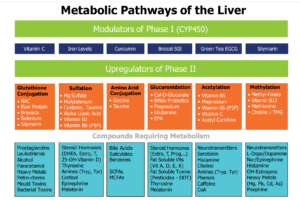Have you noticed adverse health reactions to everyday chemicals like paint, car exhaust, laundry detergent, air fresheners, perfumes, or cleaning solutions? These reactions might be more common than you think and could indicate a condition known as Multiple Chemical Sensitivity (MCS).
Prevalence of MCS
You might be experiencing Multiple Chemical Sensitivity (MCS), a condition more prevalent than many realize. This condition is rapidly increasing, poorly understood by mainstream doctors, and often misdiagnosed. In 2018, statistics showed that 6.5% of Australians had been diagnosed with MCS, and 18.9% reported being sensitive to chemicals. This significant number highlights the need for better awareness and understanding of MCS.
Common Symptoms of Multiple Chemical Sensitivity (MCS)
People with MCS often suffer from a range of symptoms, including:
- Headaches
- Nausea
- Agitation
- Brain fog
- Fatigue
- Rashes
- Trembling
- Heart palpitations
- Sweating
- Muscle and joint pains
Symptoms typically arise suddenly when exposed to triggers and improve when away from the source. The unpredictability and variety of these symptoms make it challenging for sufferers to manage their daily lives and can lead to significant distress.
Causes of Multiple Chemical Sensitivity (MCS)
My clinical understanding of MCS attributes it to an overload of detoxification pathways due to prolonged exposure to chemicals or other factors that burden these pathways. Mould and chronic infections are the most common factors in my practice.
Here are some common sources of everyday chemicals:
- Air pollutants
- Cleaning products
- Hair products
- Building materials
- MDF furniture
- Pesticides
- Herbicides
- Pharmaceuticals
- Synthetic hormones
These elements overwhelm the body’s natural detoxification processes, creating a toxic burden that is an underlying cause of many chronic conditions. Additionally, some individuals have genetic variations in detox genes that significantly slow the removal of harmful substances from the body. Single nucleotide polymorphisms (SNPs) such as CBS, GSTM1, GSTT1, GSTP1, NAT2, CYP1A1, and MTHFR can play a role.
My own MCS developed through a combination of occupational exposure, poor lifestyle, and multiple SNPs in detoxification genes. After seven years of working with extremely toxic chemicals, I became sensitive to everyday chemicals that had never bothered me before.
Living with Multiple Chemical Sensitivity (MCS)
Living with MCS is challenging. The condition not only brings debilitating physical symptoms but also leads to significant lifestyle changes. Sufferers often face isolation, career limitations, and being labeled as difficult individuals. The social implications can be just as overwhelming as the physical ones, affecting mental health and overall well-being. Everyday activities become a struggle, and the constant vigilance required to avoid triggers adds an additional layer of stress.
Treatment Multiple Chemical Sensitivity (MCS)
Mainstream medicine does not recognize MCS. There is no test to confirm its presence, which adds to the suffering of those affected. The lack of recognition and appropriate treatment options often leads to frustration and hopelessness. However, from a naturopathic perspective, MCS can be greatly improved and well-managed. A degree of sensitivity to chemicals often remains, but this can serve as a protective mechanism, signaling the body to avoid harmful exposures.
Ways to Help MCS
UNDERSTAND THE CAUSE ~ MINIMIZE EXPOSURE ~ INCREASE DETOX
Avoidance
- Minimize chemicals in the home: cleaning products, air fresheners, synthetic carpets, synthetic furnishings, toxic paints, and bedding materials.
- Address mold in the house, which blocks detox pathways and exacerbates MCS.
Food
- Eat organic, grass-fed, free-range foods.
- Avoid commercially grown vegetables, additives, flavorings, and packaging.
Water
- Use at least a charcoal filter. Ideally, invest in a quality filtration system for pure water.
Clothing
- Wear natural fibers and use natural washing detergents. Check the washing machine for mold.
Drugs/Vaccines
- Avoid them if possible, as they can contribute to the toxic load.
Supplements
- Use practitioner-only products, as commercial vitamins often contain high amounts of chemicals.
Treatment Strategies for Multiple Chemical Sensitivity
Elimination Support
Supporting the body’s elimination channels is crucial. Ensuring that the colon, kidneys, lungs, skin, and lymphatic system are functioning optimally is essential for excreting waste.
Optimizing Detoxification
Liver detoxification is particularly important, focusing on pathways such as methylation, glutathionation, and glucuronidation. People with MCS often have SNPs affecting these pathways, so optimizing their function through nutraceuticals can improve chemical processing.
The diagram below provides an excellent summary of liver metabolic pathways, their roles in detoxifying various chemicals, and how they can be supported through nutritional and herbal medicine.
A word of advice: if you suffer from severe toxicity, proceed slowly with detoxification and begin with elimination to avoid worsening your symptoms.

Homeopathic Remedies and Binders
Homeopathic drainage remedies and binders help remove toxins from the body. Binders can capture and remove harmful substances, reducing the overall toxic burden. Cholagogues, which stimulate bile flow, are also beneficial in enhancing liver function and detoxification.
Sauna and Sweating
Regular sauna use promotes sweating, which is a natural way to expel toxins. Infrared saunas are particularly effective, as they penetrate deeper into tissues and encourage more profound detoxification.
Coffee Enemas and Lymphatic Drainage
Coffee enemas support liver detoxification by increasing the production of glutathione, a powerful antioxidant. Lymphatic drainage techniques, such as manual lymphatic drainage massage, help to remove toxins from the lymphatic system and reduce the overall toxic load. Lear more about incredible benefits of lymphatic drainage https://healthyflow.com.au/lymphatic-drainage/
Summary
MCS is more prevalent than you think and is on the rise. Awareness is a significant step towards managing this condition. While it’s possible to live asymptomatically and improve the quality of life by decreasing exposure and optimizing the body’s excretions, healing is not linear. It’s a rollercoaster of flares and reactions to supplements. Always consult your healthcare practitioner for personalized advice and treatment options.
By understanding MCS and adopting comprehensive management strategies, those affected can lead healthier, more balanced lives despite the challenges of this condition.


This piece was incredibly enlightening! The level of detail and clarity in the information provided was truly captivating. The extensive research and deep expertise evident in this article are truly impressive, greatly enhancing its overall quality. The insights offered at both the beginning and end were particularly striking, sparking numerous new ideas and questions for further exploration.The way complex topics were broken down into easily understandable segments was highly engaging. The logical flow of information kept me thoroughly engaged from start to finish, making it easy to immerse myself in the subject matter. Should there be any additional resources or further reading on this topic, I would love to explore them. The knowledge shared here has significantly broadened my understanding and ignited my curiosity for more. I felt compelled to express my appreciation immediately after reading due to the exceptional quality of this article. Your dedication to crafting such outstanding content is highly appreciated, and I eagerly await future updates. Please continue with your excellent work—I will definitely be returning for more insights. Thank you for your unwavering commitment to sharing your expertise and for greatly enriching our understanding of this subject.
I loved as much as you will receive carried out right here. The sketch is attractive, your authored material stylish. nonetheless, you command get got an impatience over that you wish be delivering the following. unwell unquestionably come more formerly again since exactly the same nearly a lot often inside case you shield this hike.
Wow, amazing blog layout! How long have you been blogging for? you made blogging look easy. The overall look of your web site is magnificent, as well as the content!
What a fantastic article! The clarity and detail with which you explained the topic are truly commendable. Readers will greatly benefit from the depth of knowledge and useful information presented. It’s evident that your understanding of the subject is profound. Anticipating more of your exceptional work. Thank you for enlightening us with your expertise.
Hello my loved one I want to say that this post is amazing great written and include almost all significant infos I would like to look extra posts like this
What a remarkable article! The way you’ve tackled the topic with such precision and depth is commendable. Readers are sure to gain a great deal from the wealth of knowledge and practical insights you’ve shared. Your profound understanding of the subject shines through every part of the piece. I’m eager to see more of your exceptional work. Thank you for offering your expertise and providing us with such enlightening and comprehensive content.
You’re a true wordsmith.